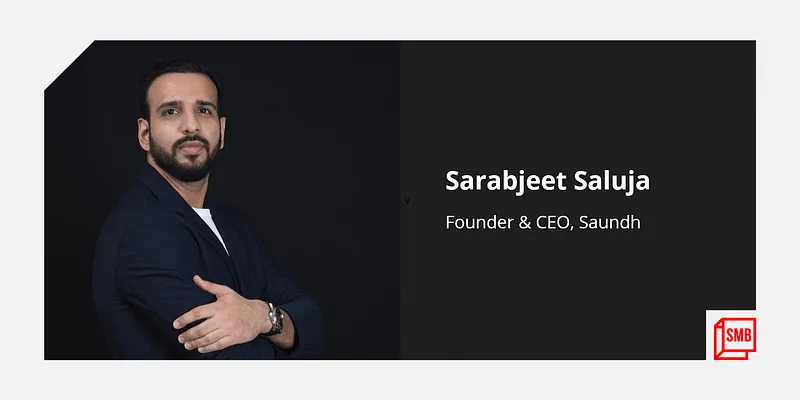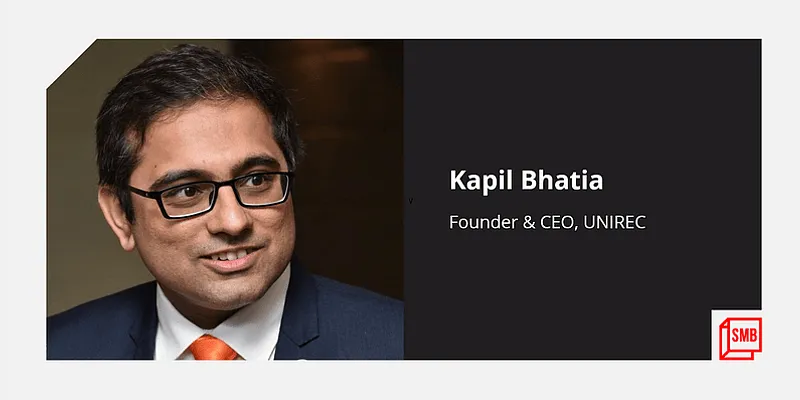These Indian apparel brands have carved a niche for themselves in a crowded market
This week, SMBStory decoded strategies deployed by some of the Indian apparel brands that have managed to stand out in this highly competitive market.
According to IMARC Group, the Indian textile and apparel market was pegged at $133 billion in 2021 and is set to grow at a CAGR of 13.8 percent between 2021-2026.
The increasing penetration of high-speed internet has contributed to the rapid expansion of online retailing in India, the report highlighted.
Further, changing lifestyle patterns, favourable demographics, and rising disposable incomes — in confluence with the enhanced convenience offered by online portals — including a vast array of options and flexible payment modes, are creating a positive outlook for the market.
However, the apparel market has become increasingly competitive over the years — not just domestic brands but from neighbouring countries, including Pakistan, China, Bangladesh, Korea, and Japan, which have an equally booming market.
This week, SMBStory decoded strategies deployed by some Indian apparel brands that have managed to stand out in this highly competitive market.
Saundh India

, founded in 2019 by Sarabjeet Saluja aka Sabby, is an apparel brand that offers tops, kurtis, jackets, kurta sets (both stitched and unstitched), loungewear, and more. Items like scarves and masks are priced below Rs 2,000, but its apparels begin from Rs 3,000 onwards.
An off-shoot of the 40-year-old Surat-based apparel brand Sahiba Limited, Saundh opened its first store in Mumbai and then in Delhi. It has 10 standalone stores in north India.
Having observed his father Kuldeep Saluja toiling his way up to build a prominent apparel brand, Sahiba Limited, Sabby says, he always knew he wanted to be in this business.
While Sahiba is now an established Indian apparel brand, Sabby was itching to do something different that would add value to the larger group.
This led him to launch Saundh India in 2019 with Rs 10 crore, a plan that was under progress since 2016. “We wanted to make something on the lines of Zara but in ethnic wear,” he says, adding he was looking at the brand to have an international appeal as well.
He says, “Sahiba has been competing mostly with the informal and formal sector in India. But the thing that has been troubling us is we have not been able to compete with Indonesian and Korean brands, which have a big export market.”
He hopes to achieve this through Saundh India.
UNIREC

The year was 2019. Kapil Bhatia was participating in exhibitions to expand his apparel business – one that he has been a part of for 20 years. What seemed like a regular business activity became his turning point when one of the customers approached him with a request to manufacture clothes made of recycled fabrics.
This led to the birth of Mumbai-based company — founded in 2021 — which makes shirts, blazers, and trousers from recycled polyester.
Kapil says, “There was nothing unusual about his request because I had heard of t-shirts made out of recycled materials.” He adds, “However, he wanted me to make shirts, blazers, and trousers, which made the task daunting.”
His plunge into the sustainable clothing space came after years of market research.
Each garment made by UNIREC recycles around 12 PET, short for polyethene terephthalate, the chemical name for polyester, bottles (of one litre). It also reduces carbon emissions by two kilograms.
The company also has a Global Recyclable Standard (GRS) certification — an international voluntary full product standard that tracks and verifies the content of recycled materials in a final product.
Although only a few months old, it has sold over 800 pieces through its D2C website. Moving forward, UNIREC plans to get listed on ecommerce platforms such as Amazon and Flipkart.
trueBrowns

From salwar suits and sarees being the norm until the 90s, Indian consumers have, over the years, adopted various styles, including jeans, Indo-western, fusion wear, casual wear, and more.
One of the categories garnering popularity is urban ethnic fashion, and trueBrowns Lifestyle is on a mission to ace this trend. The Gurugram-based company was founded in 2016 by the National Institute of Fashion Technology, Delhi alumni, Udita Bansal.
trueBrowns’ USP lies in it being a size-inclusive brand. From 2XS to 6XL, it offers a range of clothes, including blouses, kurta sets, sarees, dresses, gowns, jacket sets, and more. The brand goes beyond 6XL and makes up to 10XL on special orders. The starting price for the clothes is from Rs 1,000 onwards.
About 80 percent of its clothes are manufactured in-house, while the rest are outsourced from different parts of India. was started with an initial capital of Rs 20 lakh amassed from Udita's savings.
Miniklub

The kidswear segment in India’s apparel industry has taken a quantum leap in the past few years, thanks to the entry of many new-age brands, along with foreign brands.
Capitalising on this growth and joining the bandwagon is — a Bengaluru-based kidswear brand — which offers a premium quality apparel range.
Anjana Pasi, Founder and Director, MiniKlub, got a sense in 2012 that the kidswear sector was bound to see phenomenal growth. Back then, she, along with her husband, Manish Pasi, had been manufacturing apparel for other brands in the industry. They pivoted and entered the retail space.
In an interaction with SMBStory, Anjana says,
“Since 2002, we have been in the business of manufacturing clothes for popular foreign brands like Mothercare, Morrisons, and others. After gaining expertise and being in the business for over a decade, we thought of taking a chance and launching our brand – a complete design-to-dispatch brand.”
“The majority of the brands are just retailers,” Anjana adds. “The retailers do not understand the term ‘quality’, and this gap is widening in the Indian market.”
To fill this void, Anjana and Manish built MiniKlub using their savings, where they’d control the entire business operation — right from development to product dispatch.
Within a decade after its inception, MiniKlub has grown to be a Rs 107 crore turnover company, Anjana claims. She says in the next two or three years, the company will target an Initial Public Offering (IPO).
Edited by Suman Singh










